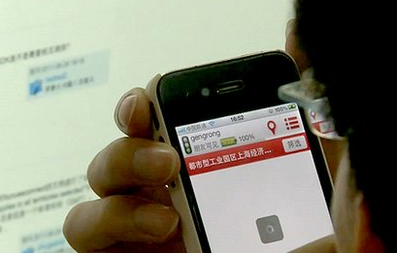(单词翻译:单击)

The mobile network growth in China has been remarkable, with some 80 million new subscribers joining every year for the past decade. But in some ways the real communications revolution has only just begun, BBC reported.
过去十年间,中国手机网络的发展可谓有目共睹,几乎每年都会新增约八千万用户。但据英国广播公司报道,在某种程度上,真正的通讯革命才刚刚开始。
This year, China will overtake America as the world's biggest Smartphone market.
今年,中国将取代美国成为世界最大的智能手机市场。
For many Chinese, the Smartphone offers them their first personal route to internet access. That presents IT developers, mobile phone app makers in particular, with an extraordinary opportunity.
对很多中国人来说,智能手机使他们第一次拥有了通向互联网的私人路径。这对于信息技术开发商、尤其是移动手机应用程序开发商来说是非比寻常的机遇。
So how then do you make money as an app developer in China?
那么,应用程序开发商是怎么在中国赚到钱的呢?
One way is to try to target in-app sales; give away the app for free, get users hooked, and then sell them the chance to enhance their experience at a low fee.
一种方法就是尝试“应用内销售”——他们推出免费的应用程序,一旦用户被吸引,再以较低的价格卖给他们体验增强版。
Although users in China may be only willing to pay a few cents for the enhanced service, when you're talking millions of users, that can soon add up to a lot of money.
虽然中国的用户只愿意出几分钱来购买升级服务,但只要想想用户多达数百万,加在一起很快就是一大笔钱。
But for non-gaming app developers, advertising revenue is the way forward.
不过,对于非游戏类应用程序开发商来说,要发展就得有广告收益。
However, one major recurring challenge remains: the country's weak protection rights regarding intellectual property.
然而,中国在知识产权保护方面“绵软无力”这一大问题始终存在。
That will need to change if China is really going to unlock the creative potential offered by its ever growing mountain of mobile hardware.
如果中国真的想发掘不断增加的移动终端所带来的创造性潜能,就必须改变这一状况。


